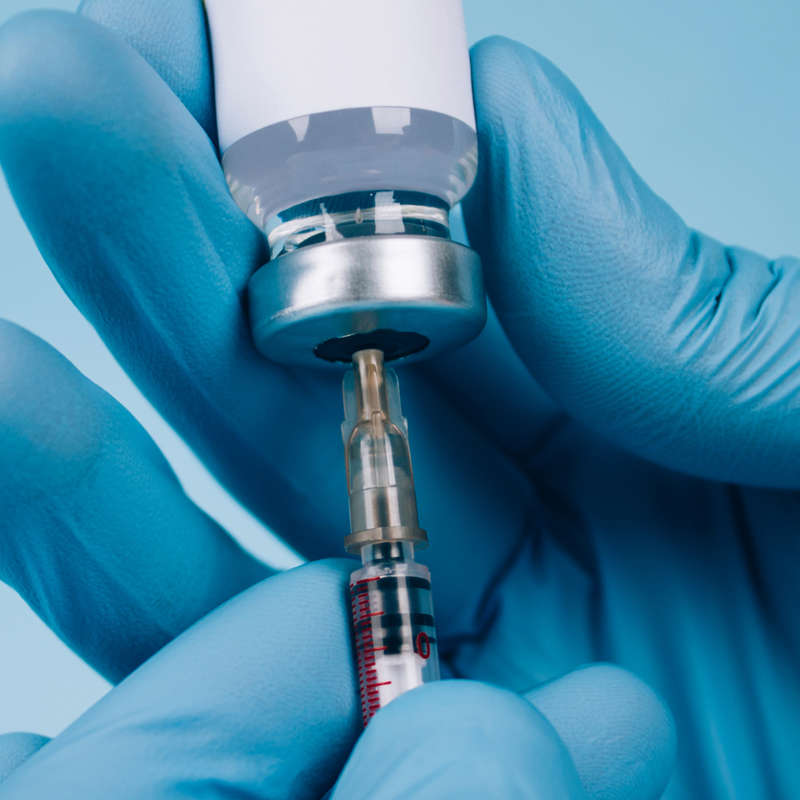154 million lives saved and an uncertain future

Six lives per minute, 4 of them are children under 1 year old. These saved lives can be directly attributed to childhood vaccination campaigns, according to the largest study to date. Article published in Lancet, shows how the mortality rate declines at different ages and compares it to a hypothetical scenario in which no vaccination campaigns were carried out. The result is obvious 154 million lives saved thanks to vaccines.
The Expanded Program on Immunization (EPI) began in 1974 and was created to vaccinate all children against 6 diseases: tetanus, tuberculosis, polio, measles, whooping cough and diphtheria. At the time, less than 5% of the population had access to vaccines, but after 50 years of effort it is estimated 84% of the child population completed the full vaccination schedule.. In addition, the vaccination program is expanding and currently recommends vaccination against 14 of the most common childhood diseases, although this recommendation may be expanded to 17 depending on the context.
This great milestone in medicine allowed completely eradicate smallpox and that some once-common diseases, such as polio, are on the verge of extinction. As stated in the report, in 2024 any child under the age of 10 would be 40% more likely to celebrate their next birthday than in a hypothetical 2024 in which no vaccination campaigns took place. And that’s even taking into account all the improvements in health, safety and hygiene that have occurred since then.
94 million measles deaths avoided
The most bittersweet data from the study relates to measles vaccine. According to the Spanish vaccination schedule, the measles vaccine is given together with the mumps and rubella vaccine (known as the MMR vaccine) in two doses: one at 12 months of birth and another at 3 or 4 years. He mechanism of action this is based on weakened viruses that cannot cause disease in healthy people, who, when vaccinated, are perceived by the body as a threat. This will create antibodies against the virus, which will make viral infection more difficult and prevent the most serious phases of the disease.
Currently, despite high vaccination rates, measles continues to claim more than 100,000 lives a year worldwide, and experts estimate that transmission will only be stopped if it reaches collective immunization exceeds 95%. However, calculations show that the measles vaccine Over the past 50 years, it has saved the lives of 94 million people. For this reason, vaccination is still considered the most effective way to prevent diseases.


Medical personnel administering a vaccine
Conditions that would seriously affect people’s quality of life are also taken into account. For example, the report estimates that the introduction of vaccines prevented 20 million cases of severe polio. The disease causes everything from paralysis of limbs to paralysis of the muscles responsible for breathing, so some people who suffer from it have needed respiratory assistance their entire lives.
Uncertain future
The alarming fact is that The COVID-19 pandemic has reduced the number of childhood vaccinations. In 2019, 18.4 million children did not show up for their vaccination appointments – a figure that was already high, but in 2021 it rose to 24.4 million. Of these figures, the most alarming is the incidence of measles, which has decreased significantly. For this reason, the number of epidemics of this disease has increased to 37 in 2022, which is 40% more than in previous years. Due, A total of 9 million children became ill and 136,000 died.
John Vertefeuille, a doctor of epidemiology and director of the Division of Global Immunization at the US Centers for Disease Control, said in a statement that the data is very sad, but this is to be expected due to drop in the percentage of people vaccinated. In developing countries, the vaccination rate is about 66%, while in other countries it continues to exceed 80%. The exception is Great Britain, where reports indicate that in some areas of the capital only 40% of children are vaccinated.
Experts say Britain’s exclusion is a result of retracted and falsified research by Dr. Andrew Wakefield. These articles, published in 1998, are precisely Lancetthey installed relationship between the MMR vaccine and increased incidence of autism. For this, manipulated data, relied on false methodologies and, as it later turned out, He financed his experiments with money from lawyers who planned to sue vaccine companies. Because of all this, as well as 32 allegations of medical negligence and abuse of disabled children, the General Medical Council of the United Kingdom revoked his medical license in 2010.
Fortunately, the new anti-vaccine trend appears to be reversing. In 2022, only 20.5 million children were not up to date on their vaccination plan.figures that, however, continue to be higher than in previous periods of the pandemic.
“More children than ever are reaching age 5”
Catherine Russell, Executive Director of UNICEF, commends all governments, researchers, health workers, volunteers and parents who know about the protection that vaccines provide against life-threatening diseases. And the fact is that, although only the 14 countries with the longest history were included in the study, There are currently more than 30 vaccines against infectious diseases..
Already with our view of the future, from April 24 to 30, the “Humanly Possible” campaign begins, an event promote and support research and vaccination programs between governments. The idea is to show the improvements that have occurred over the last 50 years thanks to EPI and establish goals and objectives for the next 50 years achieve global immunization.


